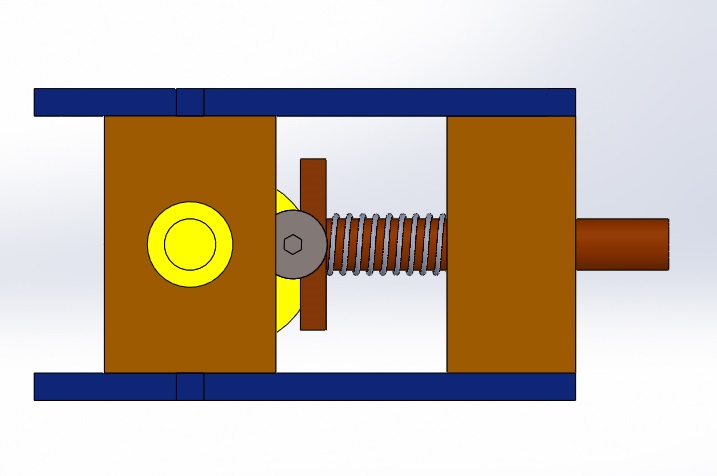Download Project Document/Synopsis
The transformation of one of the simple motions, such as rotation, into any other motions is often conveniently accomplished by means of a cam mechanism. A cam mechanism usually consists of two moving elements, the cam and the follower, mounted on a fixed frame.
Cam devices are versatile, and almost any arbitrarily specified motion can be obtained. In some instances, they offer the simplest and most compact way to transform motions.
Generally, in a cylindrical cam, the cylinder rotates around its axis and has a circumferential groove contour carved into surface of the cylindrical body and the follower runs on the cylindrical surface parallel to the axis of the cylinder.
The Inclined Cam Mechanism does qualify has a cylindrical cam, but the built is quite different. The Cylindrical surface in inclined by approx 30 degrees and it rotates about the top surface of the cylinder.
The follower in a knife edged type but has a long width such that in all times it is in contact with the cam. The follower is spring loaded and moves along the parallel axis with the spinning cylinder. The Frame allows the user to set the height of the cam. A motor rotates the inclined cam.
- Compenents
- Cam
- Cam Shaft
- Knife Edge Follower
- Spring
- Height Adjustment System
- Linear Slides
- Supporting Frame
- Nuts & Bolts
- Mounts and Joints
- Base Frame
- Screws and Connectors
Front View

Top Views






